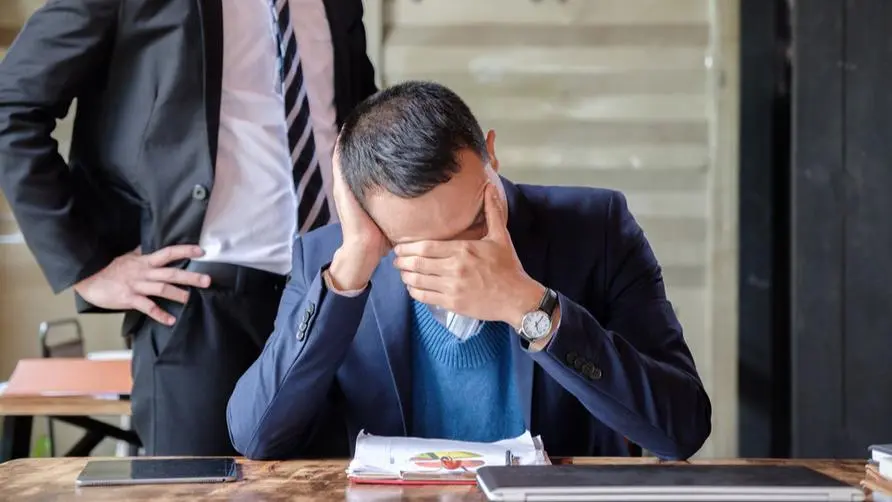Is too much "stress resistance" more harmful to the body? Consequences of medical exposure: Physiological and psychological state may "completely collapse"

Isn’t being stress-resistant necessarily a good thing? Doctor: Excessive tolerance may lead to mental illness
“Stress resistance” can help individuals successfully complete their work and gain a sense of accomplishment, but may it also be the straw that breaks the camel’s back and cause serious psychological problems? Dr. Chen Yi’an, a full-time attending physician in the psychiatry department of Taipei Municipal Wanfang Hospital, said in an exclusive interview that everyone has different coping modes when facing high pressure. If used appropriately, it can indeed help individuals achieve higher achievements and achieve self-growth.
However, in the relatively high-pressure social atmosphere in Asia, “high stress tolerance” is sometimes equated with “excessive tolerance.” “Many people think that as long as they complete their assigned tasks and bear the pressure blindly, they consider themselves to be stress resistant. Well, it’s actually just to endure more pressure silently!” When the body and mind cannot bear it anymore and are broken by the last straw, a sudden burst of emotions may cause serious mental illness.
Doctors reveal the consequences of being in a high-pressure environment for a long time: “Comprehensive physical and psychological collapse”
Dr. Chen Yi’an pointed out that being in a high-pressure environment for a long time without proper resolution will have a severe impact on the physiology and psychology: in terms of physiology, unexplained chest tightness, palpitations, dizziness and headaches may occur, and patients with chronic diseases (such as diabetes and hypertension) may have poor disease control. Worsening of gastrointestinal symptoms (eg, gastroesophageal reflux, dyspepsia). Stress can also easily affect hormone secretion, leading to obesity or overweight.
“Some people also eat to cope with stress and relieve stress by consuming a diet high in oil, sugar, and salt. Although it may seem to make their mood better in the short term, long-term “stress eating” will only cause more problems. Huge psychological pressure, falling into a vicious cycle of getting fat and eating too much.”
In terms of psychology, Dr. Chen Yi’an explained that under high pressure, people can easily become angry, irritable, or on the verge of breaking out over trivial matters. People under high pressure find it difficult to relax even on vacation. They are often preoccupied with their daily work, leading to fatigue, insomnia, lack of sleep, or poor mental health. What’s more, it may cause depression or anxiety, and you may become less motivated or less interested in people and things around you; you may also become less willing to do hobbies such as dining with friends and exercising.
How do you know if you are stressed out? Pay attention to the changes in “4 lifestyles”
How do you know if you are stressed out? Dr. Chen Yi’an pointed out that in addition to the above-mentioned physical and psychological symptoms, if you experience the following sudden physical and mental changes, you need to pay special attention to whether you are under excessive stress:
Dietary changes. Changes in eating habits may be an indicator of excessive stress, such as sudden overeating, inability to swallow, or loss of appetite.
Mood changes. In the past, it was not easy to have disputes with others, but recently I have had quarrels with relatives, partners, and friends over trivial matters, and I regretted them greatly afterwards.
Changes in body tightness. When an individual is in a state of tension or anxiety, muscles tend to tighten or exert force unconsciously and are difficult to relax, causing shoulder and neck pain and muscle discomfort, which are difficult to detect at the moment.
Sleep changes. In the past, my sleep status was good, but recently I have had insomnia, or I have to lie down for a long time before falling asleep, or I am awakened by the slightest sound, and I have difficulty falling back to sleep after waking up.
In addition, Taiwan is currently experiencing the COVID-19 epidemic, and external pressures such as quarantine policies and economic losses may affect mental state; and past studies have found that the risk of depression and anxiety symptoms increases after being diagnosed with COVID-19. Therefore, Dr. Chen Yi’an reminds the public that if you have any emotional distress in your life, or feel that you are overly stressed and can no longer bear it, you should seek psychiatric treatment as soon as possible.
Further reading:





